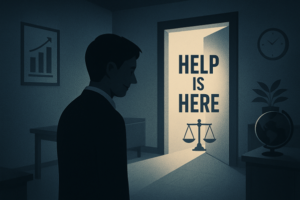Domestic abuse is still a widely under-reported crime, with only around 24% of cases reported to the police. If you are experiencing domestic abuse, either in a current relationship or one that has ended, there are steps you can take to protect yourself.

So, what is a Non-Molestation Order?
A Non-Molestation Order prohibits a person from threatening, harassing or contacting you, which can be invaluable for your physical and mental health. It is helpful to know that if that person breaches any terms of the Order in any way, it is an arrestable offence.
How can I obtain a Non-Molestation Order?
You can apply to the Court for a Non-Molestation Order if you are a victim of domestic abuse from any of the following people:-
- Your Husband/Wife/Civil Partner or Common Law Partner.
- Former Husband/Wife/Civil Partner or Common Law Partner.
- A family member such as your Brother, Sister, Aunt, Uncle, Mother or your Father.
How can I apply for a Non-Molestation Order
We can help you with the following:-
- Advise you of your options and what local support services are available.
- Prepare any Court application and supporting witness statement.
- Explain whether you should submit a Court Application and whether this should be on an emergency basis.
- Commencing a diary of events, if you aren’t already doing so.
- Manage the process on your behalf, taking away some of the stress.
- Identify next steps if the order is a Non-Molestation Order contested or breached.
What will the Court be looking for to make a Non-Molestation Order?
To obtain a Non-Molestation Order the Court will consider the following factors:-
- Evidence of “molestation” such as harassment, violence or intimidation.
- The needs for protection, whether this is because you are a victim of domestic abuse or whether you need protection from a person who you feel may cause you immediate harm.
- What measures a person has taken to seek help from relevant authorities for protection such as the Police.
Is Legal Aid available?
Yes, Legal Aid is available in certain circumstances. We can undertake a full assessment and advise whether you would be eligible.
How do I contact MKB?
Leaving an abusive relationship can be incredibly challenging and isolating. Reaching out for help and support is vital to your mental and physical safety.
We can help you with your application and any additional legal avenues (divorce, financial settlements, child contact and living arrangements) and connect you with relevant services that will support you during this process.
If you’re in an abusive relationship, or you have left the relationship but you’re still experiencing abuse, harassment or intimidation, then we’re here to support you. Contact our family law experts on 01226 210 000 or email cpeczek@mkbsolicitors.co.uk.
